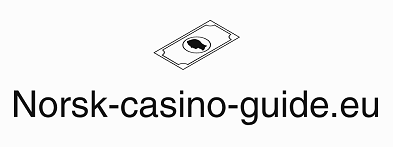As a community seeking healthier relationships with gambling, we often explore effective ways to support those among us who might be struggling. Casino self-exclusion programs have emerged as a vital tool in this endeavor, offering individuals the opportunity to take control of their gambling habits.
By voluntarily choosing to be banned from casinos, participants can set boundaries that help prevent compulsive behaviors. Together, we can better understand:
- How these programs work
- The processes involved
- The impact they have on individuals and families
Through shared knowledge, we aim to shed light on both the advantages and the challenges of self-exclusion, emphasizing the importance of accessible support systems.
By delving into the nuances of these programs, we can foster a supportive environment that encourages responsible gambling and prioritizes mental well-being.
Let us embark on this exploration with the hope of empowering ourselves and our loved ones towards healthier choices.
Understanding Self-Exclusion Programs
Self-exclusion programs are voluntary agreements where individuals commit to banning themselves from gambling facilities to manage their gambling habits. By enrolling in these programs, individuals acknowledge their need for a structured approach to break free from the cycle of gambling. This step is empowering and encourages responsible behavior.
Support Services:
- When enrolling in self-exclusion, individuals are not alone.
- Support services are available to guide participants through this journey.
- These services provide a community, connecting participants with others who understand their struggles and triumphs.
- This network fosters empathy and shared experiences, helping individuals feel understood and less isolated.
Commitment to Change:
- The process of self-exclusion is a proactive measure demonstrating commitment to change.
- By actively participating, individuals create a safer environment for themselves, allowing them to regain control.
- Participants have access to tools and support to make informed decisions.
- Together, they can foster a sense of belonging as they work toward healthier habits.
By joining self-exclusion programs, individuals take a significant step toward responsible gambling behavior, with a supportive network and resources to aid in their journey.
Eligibility and Enrollment Criteria
Eligibility Criteria for Enrollment
Participants need to meet certain eligibility criteria before enrolling in self-exclusion programs. We understand that seeking help is a significant step, and we’re committed to making the process as straightforward as possible.
To enroll, individuals typically must:
- Be of legal gambling age
- Provide identification to verify their information
This ensures that the program serves those genuinely seeking assistance.
Enrollment Process and Community Support
Enrollment in a self-exclusion program isn’t just about signing up; it’s about joining a community that supports each other in making healthier choices. We emphasize confidentiality and respect for all participants, creating a safe environment for everyone involved.
Once enrolled, participants gain access to support services designed to guide them through this journey. These services may include:
- Counseling
- Financial advice
- Peer support groups
All these are aimed at fostering a sense of belonging and encouraging positive change.
Creating a Supportive Network
Together, we can create a supportive network where everyone feels valued and empowered.
Duration and Renewal Process
Participants in Self-Exclusion Programs
Participants in self-exclusion programs often commit to a specific duration, ranging from several months to a lifetime, depending on personal needs and program guidelines. This flexibility allows individuals to choose what feels right, creating a sense of belonging in a community that understands their journey.
Once enrolled, the chosen duration marks the beginning of a commitment to personal growth and responsibility.
Renewal Options
As participants, there is an option to renew self-exclusion if necessary. The renewal process typically involves:
- A straightforward re-enrollment
- Reassurance of continued support
Support services are available to guide participants through the duration and renewal process. They help evaluate progress and make informed decisions about extending self-exclusion.
Proactive Participation
By actively participating in these programs, individuals demonstrate a proactive approach to managing their gambling habits.
This commitment not only fosters personal growth but also strengthens their bond with a community dedicated to responsible gaming.
Program Rules and Restrictions
Participants in self-exclusion programs must adhere to specific rules and restrictions to ensure the effectiveness and integrity of the initiative. Once enrolled, participants commit to a period where access to casinos and online gambling platforms is restricted. By doing so, they create a safe space for themselves and others who share their journey.
During this time:
- Casinos are obligated to deny entry and gambling privileges.
- This reinforces the participant’s commitment to the chosen path.
Adhering to these rules means participants cannot reverse their decision until the self-exclusion period ends. It’s crucial to understand the gravity of this commitment, as it’s designed to protect the individual. In many programs, breaking the rules can lead to:
- Further restrictions.
- A reset of the self-exclusion status.
Knowing these boundaries helps participants stay focused on their goals.
Enrollment isn’t just a step; it’s a promise to oneself. This collective commitment supports the path to recovery. Understanding these rules keeps participants grounded.
Support Services Available
Participants in self-exclusion programs often find a range of support services designed to assist them on their path to recovery. These services are crucial as they provide a sense of community and understanding.
When enrolling in a self-exclusion program, individuals are not just taking a step toward controlling their gambling habits; they are joining a network of support that’s ready to help. Many programs offer:
- Counseling
- Financial advice
- Peer support groups
These resources can guide individuals through the challenges of staying away from gambling environments.
Enrollment in self-exclusion is a brave step, and the support services available reinforce one’s commitment.
- Counselors are there to listen and offer strategies tailored to individual needs.
- Financial advisors help manage and rebuild finances, reducing stress.
- Peer groups connect participants with others who understand their journey, fostering a sense of belonging and solidarity.
Together, these services create a supportive environment, empowering individuals to regain control and build healthier futures.
Impact on Individuals and Families
Participating in self-exclusion programs significantly influences both individuals and their families by reducing the emotional and financial strain associated with gambling addiction.
Taking a Proactive Step:
- Enrolling in self-exclusion programs is not just about stopping the habit.
- It involves regaining control and fostering healthier relationships with those we care about.
- This step helps in rebuilding trust and stability in our lives.
Access to Support Services:
- Self-exclusion provides access to a range of support services.
- These services offer guidance and encouragement to stick to our commitment.
- Support is crucial in navigating the challenges of addiction.
Impact on Families:
- As individuals engage in self-exclusion, families often experience less stress.
- There is more hope for a brighter future.
- Families feel relieved seeing their loved ones take responsibility.
- This strengthens bonds and a sense of belonging.
Commitment to Change:
- By choosing self-exclusion and utilizing available resources, individuals show their loved ones a commitment to change.
- This commitment paves the way for shared healing and renewed connections.
Effectiveness and Challenges Faced
Many individuals find self-exclusion programs effective in curbing gambling behaviors, but they also face distinct challenges that can hinder long-term success.
Enrollment in self-exclusion is often a crucial step towards regaining control. However, for these programs to truly benefit individuals, ongoing support services must be available. Without access to counseling or peer groups, participants might struggle with temptations and feel isolated in their journey.
The effectiveness of self-exclusion largely depends on how committed individuals are to utilizing available resources. It’s important to remember that:
- Self-exclusion isn’t a standalone solution.
- It’s most successful when combined with additional support systems that reinforce commitment to a healthier lifestyle.
Unfortunately, some might find gaps in these services, making it challenging to maintain progress.
Emotional challenges also play a significant role, as individuals might feel a sense of failure when enrolling. It’s vital to foster a community where seeking help is encouraged and support is readily accessible.
By addressing these challenges together, we can navigate them more effectively and foster lasting change.
Future Developments and Considerations
Looking ahead, we must explore innovative strategies and technologies to enhance the effectiveness of self-exclusion programs in the fight against problem gambling. By embracing digital solutions, we can streamline enrollment processes, making it easier for individuals to join these programs.
Integrating biometric identification and blockchain technology could ensure the security and confidentiality of personal information, fostering trust in the system.
As members of a community that values support and understanding, we should advocate for comprehensive support services that accompany self-exclusion. These services might include:
- Counseling
- Financial advice
- Peer support networks
All designed to create a safety net for those seeking help.
Additionally, collaboration between casinos, regulatory bodies, and mental health organizations could drive the development of more robust frameworks. Together, we can create a cohesive approach that not only aids individuals who self-exclude but also encourages responsible gaming practices.
Let’s continue to build a future where everyone feels supported and valued in their journey towards healthier gaming habits.
Conclusion
In conclusion, self-exclusion programs offer a vital tool for individuals struggling with gambling addiction to take control of their behavior and seek support.
By understanding the following aspects, participants can make informed decisions to safeguard their well-being:
- Eligibility criteria
- Duration
- Available support services
Despite challenges faced, these programs play a significant role in promoting responsible gambling practices and protecting individuals and their families from the harmful impacts of excessive gambling.

